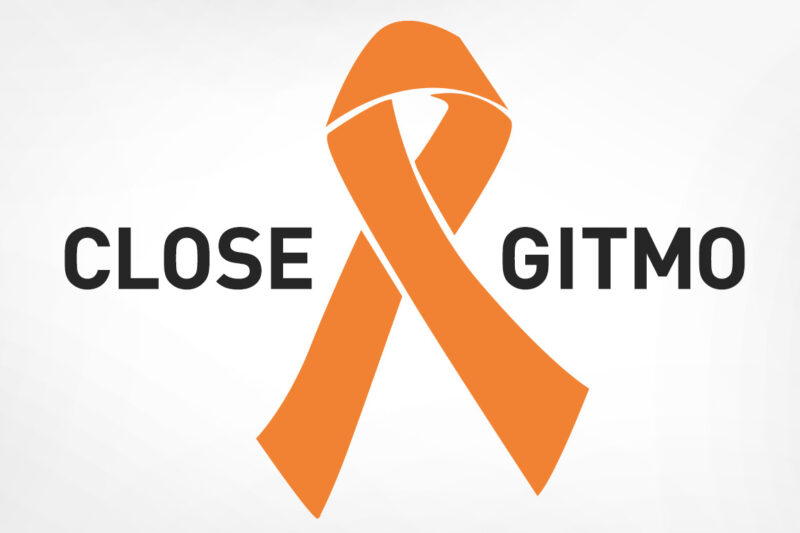
The oft-delayed, secrecy-plagued 9/11 military commission hearings came to an abrupt halt today before the scheduled arguments surrounding the competency of defendant Ramzi bin al Shibh even began. Just minutes after Army Col. James Pohl called the courtroom roll, defense lawyers revealed that, hours earlier, they had filed an emergency motion seeking to stop this week's proceedings and asking the court to investigate yet another instance of alleged government meddling with defense counsel in this death penalty case.
This time, said James Harrington — lead counsel for bin al Shibh — two FBI agents visited the Defense Security Officer assigned to bin al Shibh's defense team on the morning of Sunday, April 6. Each team of defense lawyers is assigned a DSO, who vets classified filings and acts as a liaison with the government on classification issues. Defense lawyers described the DSO as charged with helping that team further its mission of mounting a vigorous and effective defense, and his work falls within the attorney–client privilege.
Harrington suggested that the visit, during which the agents had inquired into various activities of all five defense teams, was part of an investigation into wrongdoing on the part of the defense attorneys themselves. (Carol Rosenberg of The Miami Herald has reported that the investigation relates to the publication of a 36-page document by defendant Khalid Sheikh Mohammed in January — a document several 9/11 defense lawyers say was never classified, is not relevant to the pending prosecution, and was distributed widely last year to all lawyers for both the defense and the prosecution.)
According to Cheryl Bormann, the lawyer for defendant Walid bin Attash, the agents also had the DSO sign a "Sensitive Information Non-Disclosure Agreement," a document that the attorneys had filed with the court for inspection as part of their new motion. Defense attorneys also raised a related concern: Have other members of defense staffs been approached — and gagged from ever saying so?
Today in court — before a stunned gallery of journalists and NGO observers — the defense lawyers asked Judge Pohl a simple question: How can they advise their clients on any issue if they are uncertain whether serious conflicts of interests (such as an FBI investigation of the lawyers) might prevent them from giving those clients unbiased, confidential advice?
The allegations about improper FBI conduct are serious. They are also of a piece with other troubling events that demonstrate the way in which the government continues to jeopardize the legitimacy of its own prosecution. In January 2013, an "external body" outside the courtroom — almost certainly the CIA — cut off sound to the public during a discussion of CIA black sites, without the knowledge of even the judge. Months later, files disappeared from supposedly secure defense-counsel hard drives. Next, defense lawyers learned that monitoring equipment had been installed at their counsel tables and that secret microphones had been placed in the smoke detectors in attorney–client visiting rooms.
All of these events allegedly took place without the prosecution's knowledge, raising the question of why the government seems to be prosecuting the most important terrorism case in the nation's history while its left hand is unaware of what its right hand is doing.
Today, Judge Pohl adjourned the proceedings 36 minutes after they started, with the prospects for any further substantive discussions this week looking dim. Although the proceedings will resume at 9:00 a.m. tomorrow morning, the potential for a lengthy investigation into the basis for and consequences of the FBI's visit to the security officer has cast a dark shadow over whether anything meaningful can, and will, be discussed.
Once again, these stop-and-start commission hearings are proving to be more stop than start.
Learn more about government surveillance and other civil liberties issues: Sign up for breaking news alerts, follow us on Twitter, and like us on Facebook.

